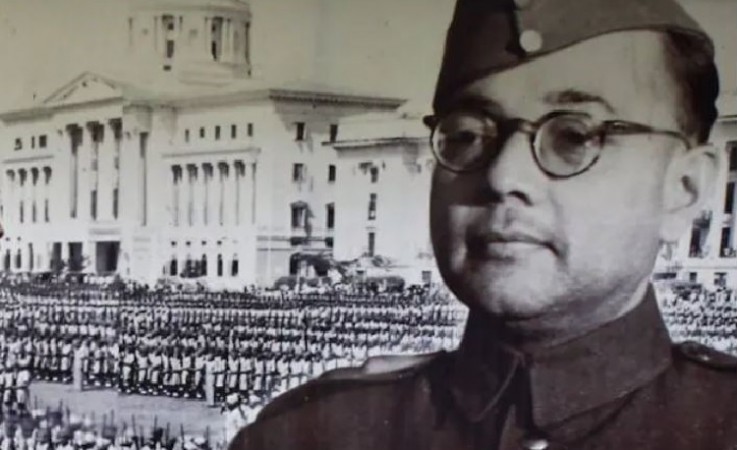
This Day in History- On June 22, 1940, a significant event took place in the political landscape of India. Netaji Subhash Chandra Bose, a prominent freedom fighter and a key figure in India's struggle for independence, established the 'Forward Block' after experiencing differences with leaders of the Indian National Congress.
Subhash Chandra Bose, popularly known as Netaji, had been actively involved in the Indian National Congress, which was at the forefront of the freedom movement. Bose had already gained recognition for his dynamic leadership and his relentless pursuit of India's independence from British rule. However, his strong-willed and assertive nature often clashed with the more moderate and cautious approach adopted by some Congress leaders.
The divergence of ideologies and strategies became increasingly apparent during the Tripuri Congress session held in March 1939. Bose contested the election for the presidency of the Indian National Congress against Pattabhi Sitaramayya, who was the preferred candidate of Mahatma Gandhi and the Congress Working Committee. Despite a spirited campaign, Bose was defeated, mainly due to the support Sitaramayya received from the Gandhi-led faction.
Frustrated by the outcome and disillusioned with the internal workings of the Congress, Subhash Chandra Bose decided to chart his own course. He believed that more radical and forceful measures were necessary to secure India's freedom. Thus, on June 22, 1940, in a public meeting held in the Haripura session of the Indian National Congress, Netaji announced the formation of a new political party called the 'Forward Block.'
The establishment of the Forward Block marked a significant shift in Bose's political career. The new party aimed to bring together like-minded individuals who shared his vision for a strong, independent India. Bose's intention was to create a platform that would facilitate more direct action against British rule, rather than relying solely on non-violent methods advocated by Gandhi and the Congress.
The Forward Block attracted a diverse range of supporters, including socialists, communists, and other left-leaning individuals who sought a more radical approach in the fight against colonialism. Bose's charisma, dynamism, and vision appealed to many who had grown disillusioned with the Congress leadership and its perceived passive stance.
Under Bose's leadership, the Forward Block actively worked to mobilize support and organize resistance against the British. He established a disciplined and well-structured party machinery, focusing on strengthening grassroots movements and building alliances with other anti-colonial groups and individuals across the country.
Despite the formation of the Forward Block, Subhash Chandra Bose continued to face challenges and opposition from various quarters. The Congress leadership, including Mahatma Gandhi, viewed his move as a division within the independence movement and were critical of his methods. However, Bose's followers remained steadfast, believing in his unwavering commitment to achieving India's freedom.
The Forward Block played a crucial role in shaping the political landscape of India during the turbulent years of the freedom struggle. It provided a platform for dissenting voices and allowed for more radical and assertive actions against the British Raj. Bose's leadership and his insistence on the use of force, if necessary, earned him a reputation as a fiery and determined freedom fighter.
Although the Forward Block eventually merged with the Indian National Congress after India gained independence in 1947, its legacy and the impact of Netaji Subhash Chandra Bose's leadership continue to be remembered and celebrated. His unwavering commitment to India's freedom, as exemplified by the formation of the Forward Block, remains an integral part of India's struggle for independence and a significant chapter in its history.